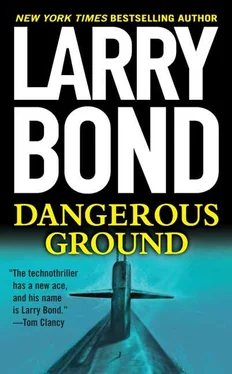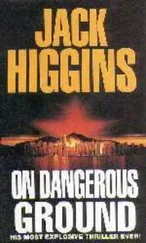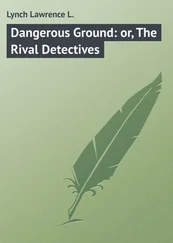They both looked up as Jerry hurried down the aisle. Foster straightened up, shaking his head.
“Can it be fixed?” asked Jerry simply.
“No, sir, not at sea,” Foster replied. “In port, with a tender or repair shop helping, it would take us a week. And we’d have to gut the thing before we could even begin repairs. In my opinion, it would be easier to replace the whole unit than fix it.” He picked up a circuit board. Part of it was blackened. “Almost every board is like this, or worse. Even the ones that aren’t charred have suffered heat stress and saltwater damage.”
Jerry heard the frustration and fatigue in his senior chief’s voice. They had worked over nine hours just to come to the conclusion that there was nothing they could do to repair the badly damaged console. “Senior, you and Bearden did your best. I can’t ask for more than that. But what I don’t understand is how did seawater get inside the console in the first place? It’s supposed to be splash-proof.”
“We haven’t been able to figure that out, Mr. Mitchell. First, we thought it could have been the gasket around the tube control panels. The FTs replaced it before we left New London, but it’s clear that the fire started at the bottom of the console.” Reynolds pointed toward the lower portion of the console, which was almost completely charred. The buttons used to control the torpedo tube functions were several feet higher. “There is no obvious path for the water to get inside like it did.”
Jerry asked, “Can we still set and launch weapons manually?”
“Yes, we can work the tubes manually without any problems, and the emergency preset circuits still seem to be working,” assured Foster, “but it’ll be slow, and of course the weapon inputs won’t be as precise.”
“Then we’ll have to be very polite to everyone we meet,” Jerry answered lightly. Looking over at the starboard tube nest, he motioned his head toward tube three. “Bearden said that TM1 figured out what the deal was with tube three.”
“Yeah,” snarled Foster with contempt. “The rubber gasket material was old and should never had been installed in the first place.”
Intrigued, Jerry raised an eyebrow and said, “Really. How old?”
“We can’t be certain. There wasn’t much of the gasket left for us to recover. And since we didn’t install the gasket assembly, we don’t know how old it was, but I found these two replacement kits in our spares locker.” Foster tossed the two gasket assemblies, one at a time, to his division officer. Jerry caught them deftly and then looked at the manufacturing date: February 1999. That was way too old. Any spare part with rubber that was five years old or more was to be viewed with extreme suspicion and returned through the supply system. The part was not to be installed under normal circumstances, because the rubber would have hardened to the point where it was no longer safe to use. This was particularly true if the system in question operated under any sort of pressure.
As Jerry examined the gasket assemblies, and thought back to the casualty, a perplexed frown formed on his face. “Senior Chief, if the part was defective, then why didn’t it fail during our earlier trials after we left New London?”
Foster smiled. But this time it was the normal Cheshire catlike grin that a chief displayed before explaining the obvious to an inexperienced junior officer. “Well, sir, for one thing, it’s hard to predict when and how a part will fail. It’s even harder when the part is defective or old. But I think the water outside of New London being some twenty-odd degrees warmer had something to do with it.”
A look of embarrassment flashed across Jerry’s face as he soon as he heard Foster’s answer. “Okay, so much for the dumb question.”
“Don’t feel too bad, sir. It took us a while to figure it out,” said Bearden with a chuckle in his voice.
“So, the cold water made the rubber more brittle and it cracked under the pressure,” said Jerry.
“Yes, sir, it also made the rubber harder,” replied Foster as he handed Jerry a piece of the fiber-optic cabling. “If you’ll look at this end, you can see where the two halves of the cracked gasket gnawed on the cable. I guess the flow of water in the tube caused the gasket to expand and contract rhythmically, which in turn caused the hard rubber to literally chew through the cable.”
As Jerry listened to Foster’s explanation and viewed the available evidence, he couldn’t help but be impressed with his guys’ work and he said as much. “That was a nice piece of detective work, Senior Chief, you two and Moran are to be commended. But this still leaves the $64,000 question. Can the tube be repaired?”
The grin returned again as Foster said, “Already done, Mr. Mitchell. Petty Officer Moran and the others installed an acceptable replacement this afternoon. All we need is the Captain’s permission to do a hydrostatic test of the tube. If it passes — and I’m pretty sure it will — we’ll be ready to conduct ROV ops immediately.”
“Bravo Zulu, Senior!” exclaimed Jerry, using the Navy expression for “Well done.” “I’m sure this will make Doctor Patterson very happy.” Then Jerry looked back over at the remains of the weapons launching console, and his enthusiasm waned. “That, however, will not go over well with the Captain.”
“No, sir, he isn’t going to like that at all,” admitted Foster.
Handing the defective gaskets back to Foster, Jerry let out a deep sigh and turned toward the starboard side aisle. “I guess it’s time to tell him, then,” he announced darkly.
“Do you want me come along, sir?” asked Foster sincerely.
Heartened by the unexpected show of support, Jerry quickly agreed. “Yes, Senior Chief, I would. Thank you.”
* * *
Hardy took their report in the wardroom, with the XO, the department heads, and the two ladies present. The atmosphere in the room had a court-martial-like feel to it, with Hardy sitting motionless at the opposite end, a stony expression on his face. Jerry stood stiffly before the audience and summarized the damage from the casualty, the repairs that could be made and those that couldn’t, and their effects.
He started with the status of the ROVs and the torpedo tubes, primarily because they were the only good news he had to offer. Patterson listened intently as Jerry reported that the ROVs were both in fine shape. While this was encouraging, Patterson appeared edgy, shifting about in her seat as though she had sat on a burr.
“Mr. Mitchell, I’m sure Emily appreciates all you have done for her ROVs, but this doesn’t help us much if the torpedo tube used to deploy them doesn’t work. Were you able to repair the tube?” demanded Patterson nervously.
Jerry let a small, satisfied smile form on his face as he said, “Yes, ma’am. My guys have already completed the repairs to tube three. All I need is the Captain’s permission for a pressure test to make sure everything is squared away. If the test is satisfactory, we should be able to launch and recover the ROVs without any problems.”
“Splendid!” exclaimed Patterson, much relieved.
“Just a moment, Dr. Patterson,” interrupted Hardy, tapping the table with two fingers. “Before I authorize any test, I need to know what caused the leak in the first place and who is responsible.” The look of joy on Patterson’s face immediately gave way to one of frustration. For a brief moment, it looked like she was going to protest, but Hardy cut her off with a curt wave of his hand and a stern, uncompromising stare.
Looking back at Jerry, Hardy repeated himself. “What caused the casualty, Mr. Mitchell? And who is responsible?”
“Sir,” said Jerry firmly, “the casualty occurred because the fiber-optic penetration gasket failed catastrophically. And the reason why it failed is because it was very likely beyond its shelf life.” He motioned for Foster to hand to the Captain a piece of the failed gasket and one of the outdated spares.
Читать дальше












